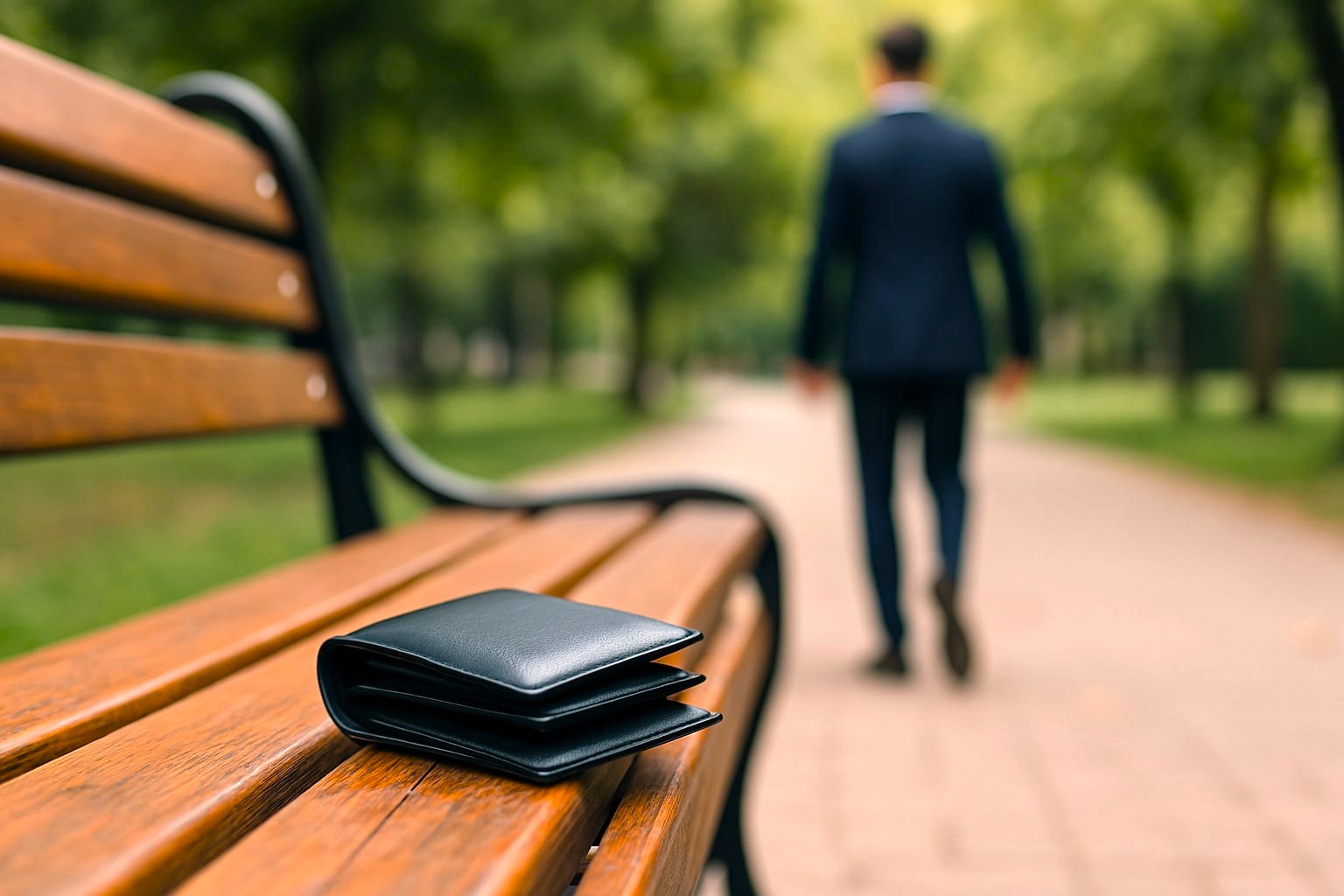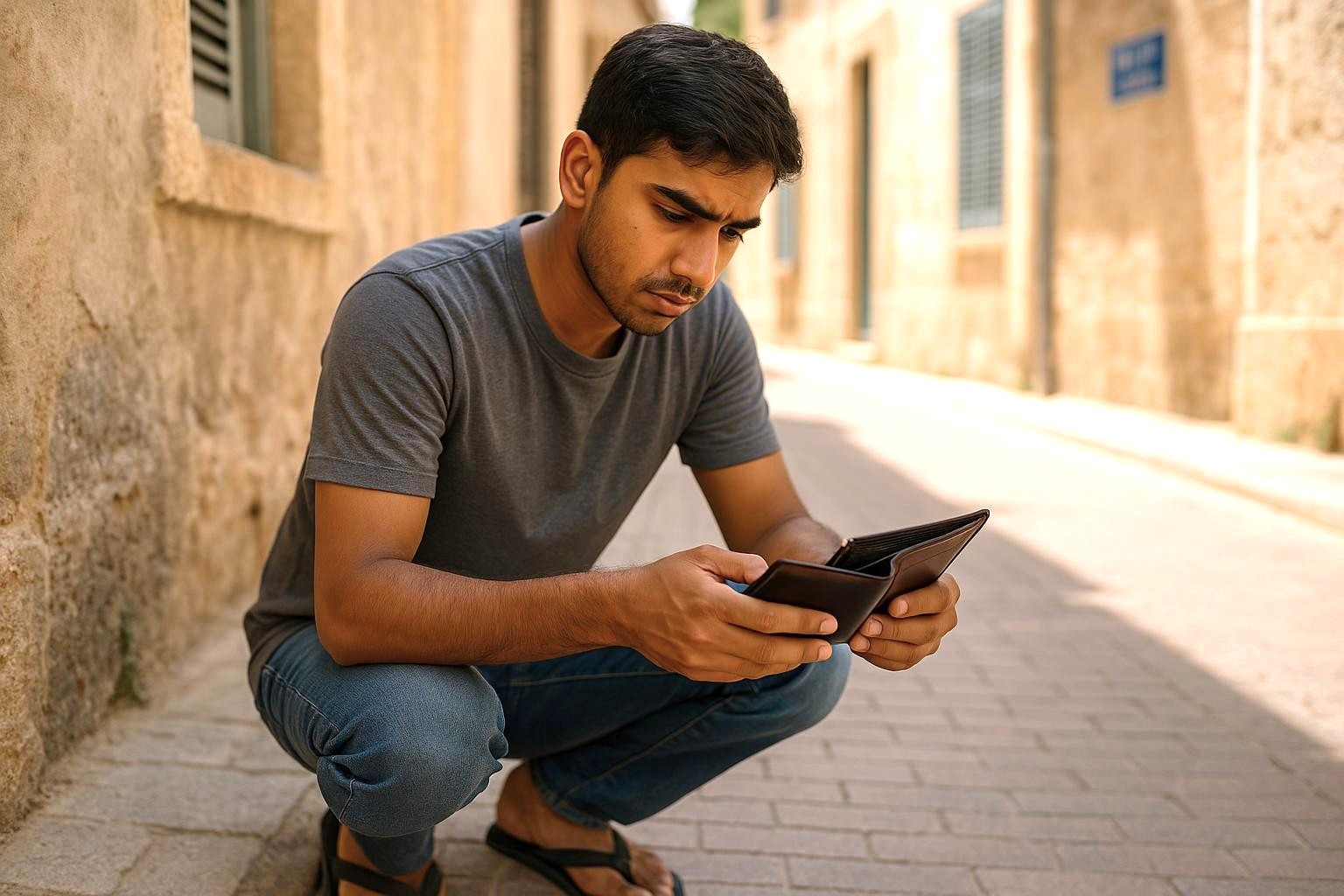‘I was fairly sure I’d see at least three returned; colleagues predicted everything from none to four’
Eight years ago, on my first day living in Latsia, I lost my credit card!
I didn’t know I’d lost it – I’d been scoping my local kiosk, dropped it outside, and driven off in total ignorance.
Not five minutes later, as I was pulling into my driveway, I got a call. In the time it had taken me to get home, a passing stranger had noticed my card, picked it up, and handed it in to the police station!
‘I’m going to like Latsia!’ I thought. ‘What a neighbourly neighbourhood.’ But then I remembered previous incidents – losing my keys in a Limassol supermarket, my phone on a Paphos beach, my wallet on a backstreet in Larnaca…
All, without fail, found their way home. So either my guardian angel deserves a medal, or we’re vastly underrating Cyprus’ kindness.
The 2025 World Happiness Report certainly bears this out. Across the world, people of every nation consistently underestimate the kindness of others: we assume strangers won’t help, lost items won’t be returned, that selfishness is natural. And yet, adds the report, not only are people basically kind – but by failing to recognise this, we’re making ourselves unhappy!
Expecting kindness, we’re told, is actually a far stronger predictor of happiness than wealth or safety. It can increase a nation’s overall happiness score by 1.2 – the difference between first-place Finland (still ranked the happiest country in the world) and 36th place Romania. Or between Cyprus (ranked 67th) and Pakistan (ranked 109th).
To prove this, the report highlights an experiment in which researchers asked people whether they thought a lost wallet would be returned. And then they actually did this: ‘losing’ wallets in 40 nations to see what would happen!
Happier nations did indeed believe more wallets would be returned. But, more importantly, the rate of return across all countries was far higher than anyone had predicted!
‘People are much too pessimistic about the benevolence of others, and the kindness of their communities,’says the report.‘For example, when wallets were dropped in the street by researchers, the proportion of returned wallets was far higher than people expected. This is hugely encouraging.’
In Canada, the public thought one in five wallets would be returned. In actuality, more than four in five found their way home! In Sweden, Denmark and Norway, citizens predicted roughly half of wallets would be returned. But again, over 80 per cent actually were.
This, the report notes, is a problem. Because when we assume the worst – expecting selfishness or dishonesty – we become less trusting, less happy.

In Cyprus, where just 1.6 per cent of us believe other people can be trusted (by far the lowest on the continent), and our happiness rating is dropping by the year, we have a perfect storm of pessimism and distrust.
But could we be doing ourselves a disservice? And so, in a very ad hoc experiment, we decided to conduct the Great Cyprus Wallet Drop…
Personally, I was fairly sure that half of our wallets would be returned; colleagues were less hopeful. We were all very wrong!
Having bought five wallets, we filled them with items that might prompt return, including €5 and change, personal photos, loyalty cards, to do lists, and our own business cards.
The first wallet was ‘lost’ by a bench in a mall. From a distance, we watched. Twenty people walked by without noticing a thing before, at exactly the 10-minute mark, a 40-year-old man drew his partner’s attention to the wallet. She instantly called a security guard who picked it up and wandered off. There was no immediate call.
The second was dropped outside an AlphaMega on a weekday morning; spotted less than 30 seconds later by a middle-aged Cypriot woman. Without a glance inside, she handed it straight to customer service. Security were on the phone to us within five minutes.
The third we mislaid on our home street – our neighbours’ boisterous preteen boys discovered it, opened it, and ran straight to our door.
And the fourth went astray outside a takeaway joint frequented by everyone from yummy mummies to immigrant workers. A Pakistani Wolt delivery driver spied it, and handed it over the counter. We were called that afternoon.
So far we’d ‘lost’ four, and seen three reappear. So for the fifth, we upped the stakes.
On a quiet Sunday with minimal foot traffic, we abandoned our final wallet on the sprawling University of Cyprus campus – a space frequented by students, most with no personal ties to the area and many likely under financial pressure. As we drove off, we felt sure this one would never find its way home.
And yet, not two hours later, we got the call.
A young Romanian bus driver had spotted the wallet, and leapt from his bus (apologies to those we delayed). He was, he explained, currently heading to Ledra – but his route would bring him back to campus at 4pm if we’d like to meet?
We arranged a place, collected the wallet, thanked him effusively and sat in wonderment for a good 10 minutes. Of our five wallets, four had been returned – almost instantly. And, the following day, the Mall called us to retrieve our first wallet from Lost and Found.
In short, all five were returned. Every single wallet came home.
Granted, this was a small experiment. In an ideal world, we would have dropped multiple wallets from multiple owners (ours were all either English or Cypriot) across several towns and villages, and included larger amounts of money or credit cards.
But our Wallet Drop was just enough to test a feeling: the idea that Cyprus is a great deal kinder than we think. And perhaps, if we could acknowledge that, we might be a great deal happier.
Have you ever lost your wallet in Cyprus? And was it returned?






Click here to change your cookie preferences